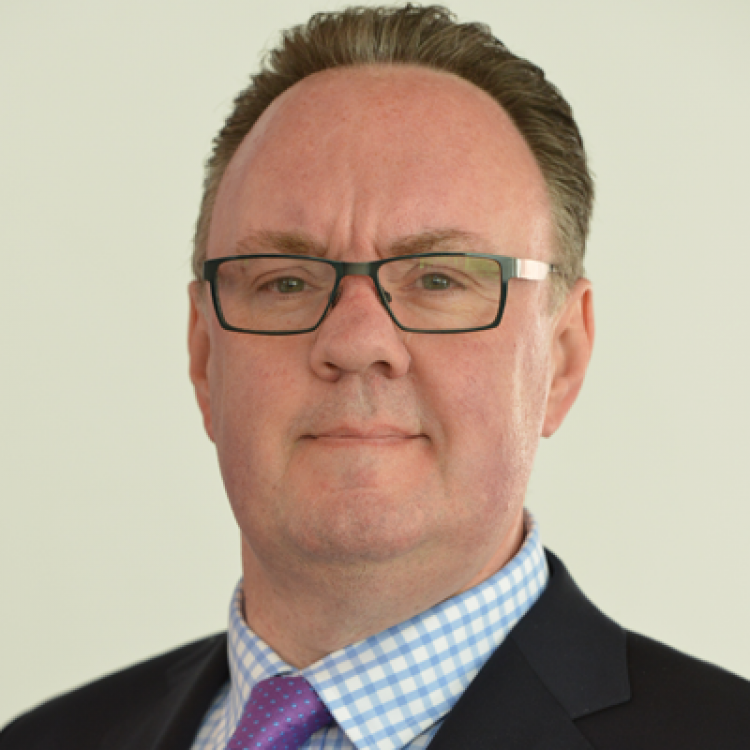Chairman's interview: "Risk careers are too linear for the next generation"

Risk management has an image problem, says Tim Murray, who took up the position of Airmic chairman in June this year. Here he speaks to Jessica Titherington about his mission to help risk move with the times.
"Airmic has an unparalleled position across the profession," reflects Tim Murray, Airmic's new chairman. "It's breadth of visibility and reach gives it a real position of influence. It can drive the agenda. And that, for me, was the real appeal of being chairman. It's a unique chance to bring about positive change."
Passion is often an overused word, but in Mr Murray's case, his passion for risk management is absolutely clear. For him, it is one of the best careers out there - challenging, diverse, rewarding - and it is of great frustration to him that risk management is often perceived as staid or transactional.
One of his primary aims for his year as chairman is to set about changing this. "Risk management has an image problem. Most people don't know what risk management is, or they mix it up with insurance which they view as purely transactional. They don't understand the amazing opportunities that are out there. We need to shout about it."
Our profession is too siloed
Mr Murray firmly believes that the risk management profession is changing in terms of the type of professional it requires. "New skills are needed given the risk environment we are in. We increasingly need people with knowledge across the organisation, with experience in various different roles. Our profession has a tendency to be siloed - we need to inject flexibility."
Understanding this shift is also important for attracting the best talent, he says. Today's young people do not want a linear career progression, he explains. "They want to try different roles, to gain new skills. This, for me, is a real positive for our profession because you can do that in risk, and it's what the risk profession needs. However, if we don't demonstrate to the future talent that these options are open to them, they'll go elsewhere."
Encouraging flexible careers
Airmic offers fantastic career support to its members, says Mr Murray, but it must do more to encourage flexibility and fluidity within those careers. For example, he'd like to see more visits to schools and universities that demonstrate the full range of career options open to the next generation of risk managers. He is also keen to establish more knowledge sharing among the different parts of the profession, including insurers, brokers, loss adjusters, risk managers and other risk-related roles within companies.
"We must expose current members and future talent to the whole range of options available to them. We must make it clear that having a varied career is not only possible but it will put them at a competitive advantage."
Insurance is just the beginning
Inherent in the problem is the perception that risk and insurance are two separate professions, says Mr Murray. "I want to make it clear that risk and insurance are intrinsically linked, so much so that you can't separate them." Insurance is often a vital part of a risk manager's armoury, he says, but it is only one aspect of the risk strategy.
By way of example, he draws on his experience at his day job as group director for enterprise risk at Serco: "Only a minority of our Principal Risks are insurable. So while an understanding of insurance is an important base of knowledge for a risk professional, the point is it's only the beginning. Insurance is an aid to risk management strategy, but always within an ERM context."
An old fashioned reputation?
Mr Murray would also like to use his year in the chair to raise awareness about diversity and inclusion (D&I) in the risk and insurance profession. "This should be a real concern for everyone in the profession. Most companies need to improve their wider D&I thinking to include not only gender equality but also to encompass age, ethnicity, physical and mental disability and a tendency towards regional bias, in particular a traditional focus on London and the south east."
Collaboration on issues such as D&I and mental health and wellbeing policies makes sense, he believes, as the learnings and need for change across other traditional professions can only benefit from alignment. Mr Murray says he has already reached out to counterparts in the risk, insurance and legal professions in this regard. "
It is not only the right thing to do, he believes, but it will also be crucial for attracting and retaining talent. "Our profession has a very old fashioned and mixed reputation on this front which will continue to turn off younger generations until tangible changes in thinking are demonstrated."
Shout about risk
Mr Murray knows that his related aims of improving risk management's reputation and encouraging greater diversity are ambitious, especially as he has just one year as chairman. "These are not challenges that can be achieved overnight, or indeed in twelve months. But we can set the process in motion. We can all start being advocates of our fascinating profession and ensuring that risk and insurance are keeping pace with the changing standards of the next generations."
